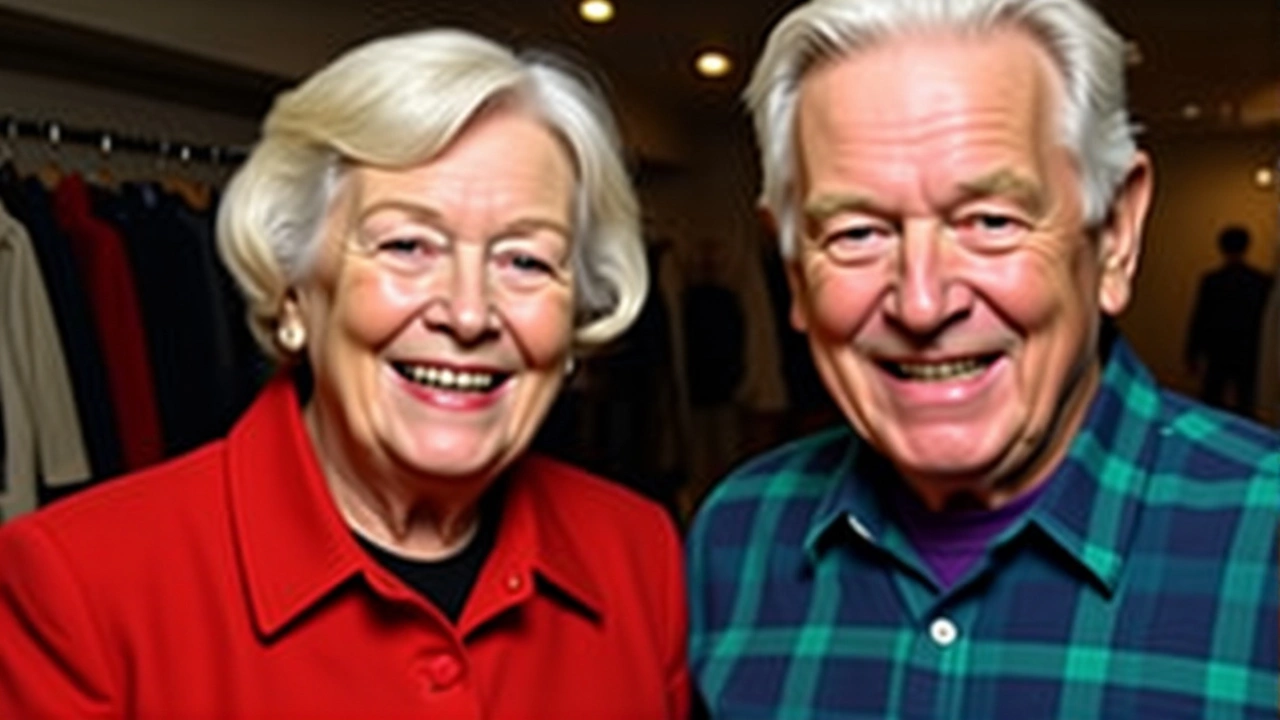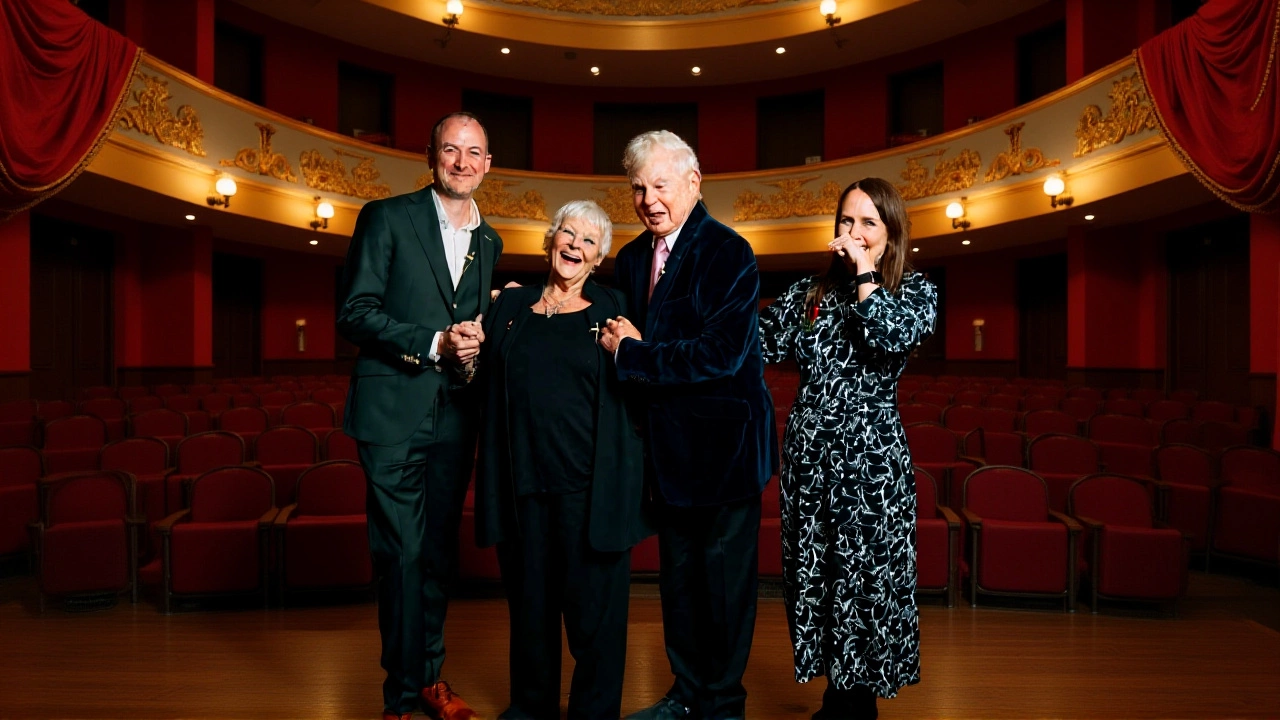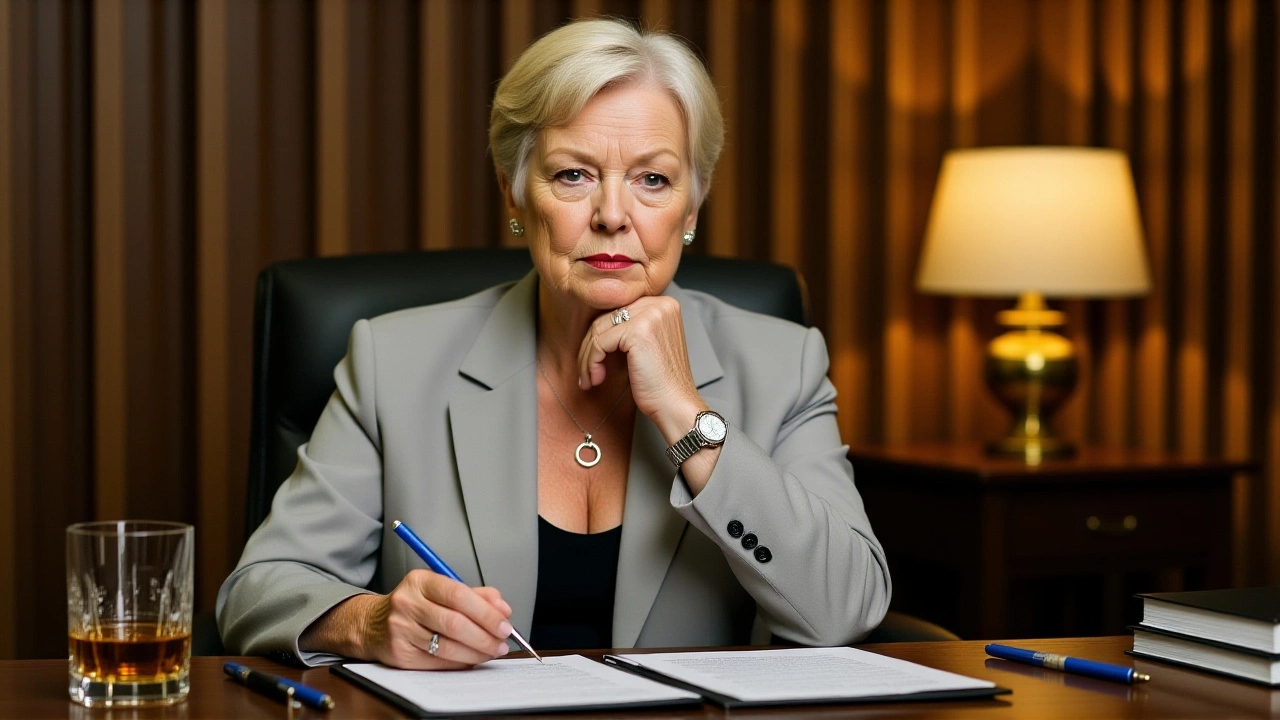When Irish Museum of Modern Art paused outdoor screenings of Derek Jarman’s 1985 film The Angelic Conversation after a parent’s complaint, no one expected it to spark a national debate about art, childhood, and censorship. But that’s exactly what happened. The film—featuring Dame Judi Dench, 89, reading 14 of Shakespeare’s sonnets over slow, sensual images of two gay men in intimate embrace—was pulled after just ten days of a scheduled two-week run. The reason? A January 2025 letter from an unnamed parent claiming their five-year-old daughter walked past the screen and saw "close-up footage of topless adults kissing intimately." The parent threatened to escalate the matter to the Irish government, calling the film "harmful to my child’s health."
"An Abundance of Caution," Not Censorship
IMMA’s head of programming, Mary Cremin, didn’t immediately remove the film. She called it a "review with consideration for all visitors." The complaint was passed to the Broadcasting Authority of Ireland, then to the Irish Film Classification Office, which confirmed the film had a PG rating and offered to advise on any future screenings—free of charge. Still, on July 18, 2025, IMMA posted a statement on Instagram that read like a manifesto: "We are dismayed at the current supposition that we would actively censor the work of Derek Jarman."
"When the complaint was raised, towards the end of the film’s two-week run," an IMMA spokesperson explained, "we made the decision to pause the screening... to ensure we were not in conflict with any planning or screening legislation for art in a public space." It wasn’t about the content. It was about legal ambiguity. And that’s the twist: the museum didn’t buckle to pressure. They paused to clarify their own boundaries.
Why This Film? Why Now?
The Angelic Conversation isn’t just any film. It’s a poetic, dreamlike meditation on love, desire, and silence. Shot in muted blues and golds, with no dialogue beyond Dench’s voice—calm, deliberate, almost sacred—it’s the opposite of sensationalism. Jarman, who died of AIDS-related complications in 1994, made this film as a quiet act of resistance: two men kissing in a cathedral, walking through fields, lying in water. No violence. No exploitation. Just tenderness.
And yet, to someone unfamiliar with arthouse cinema, a lingering shot of bare skin might look like something else entirely. That’s the gap this incident exposed: between artistic intent and public perception. The outdoor screening took place near a children’s play area—a fact IMMA had disclosed in its event listing. But no one anticipated a parent would interpret a 40-year-old experimental film as child endangerment.

Judi Dench: The Unlikely Thorn in Censorship’s Side
Here’s the irony: Dame Judi Dench has spent her career being the quiet force behind films that make censors squirm. From Shakespeare in Love to Philomena, she’s played characters who challenge norms without shouting about it. In 2024, she told Vanity Fair: "If you’re that sensitive, don’t go to the theater… Where is the surprise of seeing and understanding it in your own way?"
That quote isn’t just wit. It’s a philosophy. And Far Out Magazine’s July 2025 profile, titled How Judi Dench Became a Thorn in the Side of Film Censors, lays it out: she doesn’t seek controversy. But her choices—often LGBTQ+ narratives, emotionally raw roles, or films that refuse to explain themselves—keep landing on censorship watchlists. She’s been in films banned in Russia, challenged in India, quietly removed in conservative U.S. towns. Yet she never protests. She just keeps working.
What Happens Next?
On July 21, 2025, IMMA confirmed to The Art Newspaper that The Angelic Conversation would return to the same outdoor screen in August 2025—this time with a new sign: "This film contains intimate imagery. Viewer discretion advised."
But the real story isn’t the return. It’s the silence that followed. No protests. No rallies. Just social media threads filled with people who hadn’t seen the film asking, "Wait… what did they actually see?"
Meanwhile, the parent who filed the complaint has not responded to requests for comment. And IMMA hasn’t apologized. They’ve simply moved forward—with more clarity, more signage, and a quiet refusal to let fear dictate art.

The Bigger Picture
This isn’t an isolated case. In Poland, a screening of Call Me By Your Name was shut down after a similar complaint. In Hungary, LGBTQ+ content is now legally restricted in public spaces. Even in the UK, some schools have banned Love, Simon over "inappropriate content."
But here in Dublin, something different happened. The system didn’t collapse. The museum didn’t cave. The artist’s work wasn’t erased. It was paused, questioned, and then reinstated—with more context, not less.
That’s not censorship. That’s responsibility.
Frequently Asked Questions
Why was a PG-rated film removed from a public outdoor screening?
The Irish Museum of Modern Art paused screenings not because the film violated its PG rating, but because the outdoor location bordered a children’s play area. Concerns arose about whether public art in such spaces needed additional legal safeguards. The museum sought clarification from Ireland’s film classification body to ensure compliance with local planning laws—not because the content was deemed inappropriate.
Does this mean LGBTQ+ art is being targeted in Ireland?
No evidence suggests targeted censorship. The film, The Angelic Conversation, has been screened in Ireland since 1985 without incident. This case stemmed from a single parent’s interpretation of intimate imagery, not a broader campaign. IMMA emphasized their long-standing support for LGBTQ+ artists, including Derek Jarman, and confirmed the film’s return in August 2025 with added context.
How common are complaints about art in public spaces?
Complaints about public art are increasing globally, especially with social media amplifying isolated reactions. In 2023, the UK’s Arts Council recorded a 37% rise in public complaints about exhibitions, mostly over nudity or LGBTQ+ themes. But most institutions, like IMMA, respond by adding context—not removing work. Only 12% of such complaints led to permanent removals.
Why does Judi Dench keep appearing in controversial films?
Dame Judi Dench doesn’t choose roles to provoke. She chooses roles that feel human—complex, quiet, often marginalized. Her performances in Philomena, Notes on a Scandal, and The Angelic Conversation all center emotional truth over spectacle. As she once said, "You don’t need to be told how to feel." That’s why censors keep noticing her: she makes audiences feel something they’re not supposed to talk about.
Will this affect future outdoor art screenings in Dublin?
Yes—but positively. IMMA has announced new protocols: all outdoor screenings near play areas will now include clear, visible advisories about content and recommended viewer age. This isn’t a setback; it’s a model. Other institutions in Europe are already studying Dublin’s approach as a balanced way to protect children without silencing art.
What’s the significance of Shakespeare’s sonnets in this film?
Jarman chose Shakespeare’s sonnets because they’re among the most intimate love poems ever written—many addressed to a young man. Sonnet 20, for example, speaks of a beloved with "a woman’s face" yet "a man’s heart." Dench’s voice, calm and reverent, transforms these centuries-old words into a quiet declaration of same-sex love. The censorship debate, ironically, proves Jarman’s point: love like this still makes people uncomfortable—even in 2025.
